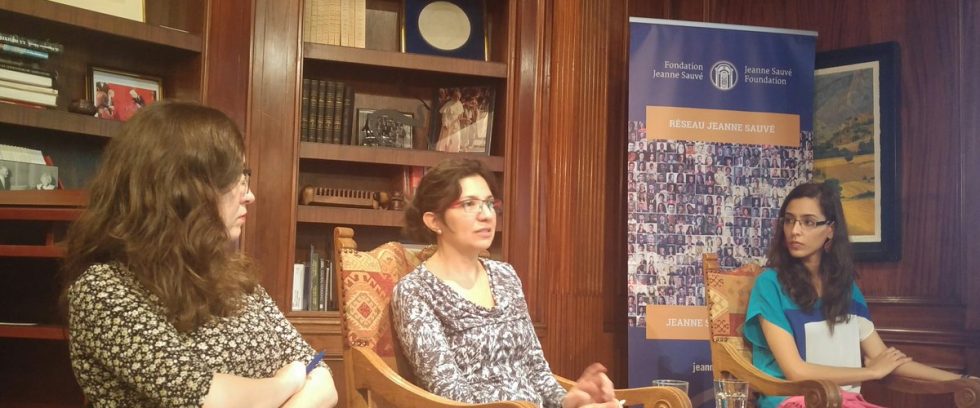
A report by Sauvé Fellow Sashenka Lleshaj:
On October 10, Sauvé Fellows had a full-day discussion on the topic of radicalization. While exploring a topic that brings up heated debates among scholars and policymakers alike, many questions were answered and new paths of inquiry and action were discovered. In order to discuss such a complex topic in their Leadership Encounter, Fellows hosted Marian Misdrahi, Programs Coordinator at the Center for the Prevention of Radicalization Leading to Violence, and Sabrina Sassi (2015-17 Fellow), researcher and social activist.
“Biographies of ‘homegrown’ European terrorists show they are violent nihilists who adopt Islam, rather than religious fundamentalists who turn to violence,” assessed Oliver Roy in his article “Who are the new jihadis?“. He is not alone in moving beyond the public narratives of so called “religious motives” to look for answers to today’s complex questions about radicalization. Whether researchers explored attitudes towards violence, youth alienation from their communities, marginalization, stigmatization or socio-economic conditions to explore root-causes of radicalization leading to violence, there is increasing agreement that “religious motives” provide easy answers to a complex phenomenon. In many western societies, public narratives that easily linked Islam to violence fueled radicalization agendas instead of countering them.
During the Leadership Encounter on radicalization, together with guests, Fellows explored dimensions and paths of radicalization while discussing practices of preventing and countering violent extremism. Marian Misdrahi introduced Fellows to the work of the Center for the Prevention of Radicalization Leading to Violence. The Center’s work is based on the belief that radicalization is a social problem long before becoming a security problem. Ms. Misdrahi focused specifically on the Center’s community work with youth and brought into the discussion practices of preventing radicalization.
Sauvé Fellow Sabrina Sassi, went beyond the Canadian context and also introduced Fellows to the situation in France, her home country. She dove deep into root causes of radicalization, the anemic sense of belonging of European youth, the radical policies that state actors can pursue towards whole communities and their counter-productive de-radicalization practices. Islamophobia and hate speech were inevitable sub-topics of our discussion.
How can public leaders like us contribute to preventing radicalization, especially among youth? While there are no easy paths and many wrong approaches, inclusive policies and proper education are key to long-term sustainable solutions that address the problem’s root causes and not only its manifestations.
